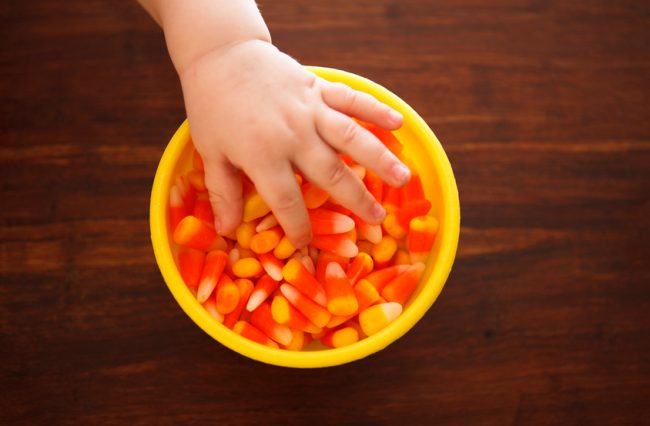Halloween is almost here, and soon children across the land will gorge on bags full of sugary candy. Millions of parents fear that too much sugar will transform their well-mannered tykes into hyperactive ghouls and goblins.
However, science has a message for such worried moms and dads: Relax.
Sugar does not make your children hyperactive after all, numerous studies have concluded.
Prestigious schools such as Vanderbilt University, the University of Iowa and the University of Kentucky all have found that sugar will not get your kids bouncing off the walls — or hopping through the pumpkin patch.
The myth that sugar causes hyperactivity in children might be a result of the fact that kids tend to consume sugary treats at events — such as birthday parties and Halloween gatherings — that excite them.
In other words, the “rush” comes from the fun of the celebration, not the chocolate bar itself.
Sugar’s spooky dangers
But before you exhale in relief over the discredited “hyperactivity” superstition, we have some scarier news. It is Halloween, after all.
While sugar might not turn your Dr. Jekyll children into Mr. Hyde monsters, it poses many other health dangers when consumed in excess.
Perhaps the greatest risk is that children might develop a lifelong sweet tooth that will boost their risk of obesity.
“Consuming excessive amounts of sugar has been linked to an increased craving for more sweets, leading to increased caloric intake and weight gain,” says Kim Denkhaus, a registered dietitian and founder and CEO of Farm Haus Nutrition.
Eating sugary foods also:
- Raises your child’s risk for tooth decay
- Has been linked to more pronounced mood swings
- Deprives your child of the nutrients that can found in more healthful foods such as fruits, vegetables and whole grains
Research also shows that America’s kids are losing the battle with sugar not just on Halloween, but throughout the year, says Alissa Rumsey, a registered dietitian and spokesperson for the Academy of Nutrition and Dietetics.
“Candy and sweets are present on a daily basis in kids’ lives,” Rumsey says. “From cookies and cupcakes at school birthdays, to sugary sports drinks at practices and games, kids are habitually eating too much sugar.”
Tips for keeping Halloween sweet and safe
Don’t let the potential dangerous effects of sugar give you an extra scare this Halloween. Instead, take steps to keep your kids’ candy consumption at less frightful levels.
For starters, Rumsey suggests waiting until the last possible moment before buying the Halloween candy you plan to hand out to neighborhood kids.
“The longer it sits in the house before Halloween, the bigger chance you have of your kids — or you — eating it,” she says.
Rumsey also urges you to prepare a full, nutritious dinner for your children before they trick-or-treat. Denkhaus agrees, saying an empty stomach puts you at risk of overindulging.
“‘Spoil your dinner’ is a saying I often tell my clients,” she says. “Don’t walk into your favorite pizza restaurant starving.”
Other tips for limiting your child’s sugar consumption include:
- Limit candy consumption on Halloween night. Reach an agreement about how much candy your kids get to eat after trick-or-treating, Rumsey says.
- Ask children to keep their favorites, and get rid of the rest. This will help teach your kids to eat what they most enjoy, and “not to waste time on what they don’t, just because it’s there,” Rumsey says.
- Have a policy of one treat per day. Rumsey suggests letting your kids choose the candy they want and when they want to eat it.
- Be creative with Halloween treats. Denkhaus says a basic internet search will turn up many alternative, nutritious Halloween snacks. “Get on Pinterest and search for ‘healthy Halloween treats,'” she says.

